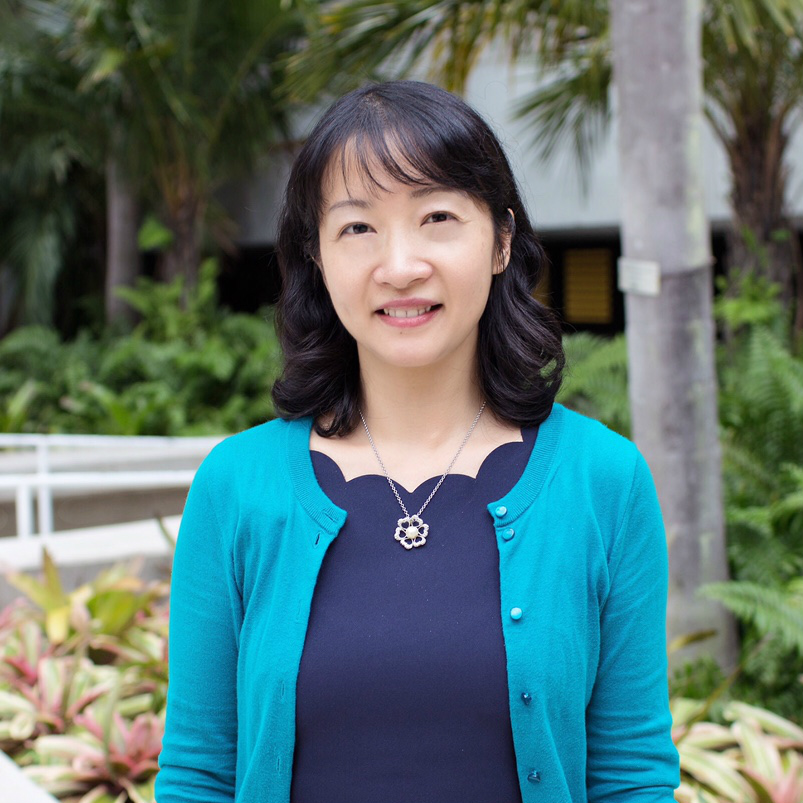Designing and participating in COIL is a new experience for many. Understandably, faculty and students are often timid and uncertain as they approach COIL.
Learn how a teacher and student overcame their hesitancy toward COIL and created a transformational learning experience that transcended borders.
Faculty Hesitancy
FIU Associate Teaching Professor Dr. Ming Fang specializes in second language writing, multilingual writing pedagogy, transnational writing program administration.
Dr. Fang was eager to COIL her course, Writing Across Borders, in order to engage her students with peers using other writing and rhetoric traditions. Fang jumped in eagerly with a partner in China, but initial efforts fell short due to their limited knowledge of collaborative design. Rather than give up, Fang took advantage of COIL professional development, and she and her partner developed new activities that demanded true collaboration. Similar to working on a jigsaw puzzle, successful learning was achieved when everyone in the group contributed their own unique knowledge to the project’s completion. Dr. Fang’s hard work paid off. Student feedback motivated her further: “Listening to [FIU student] Charis’ experience strengthened my determination to continue designing COIL courses,” says Dr. Fang. Little did Fang know that at the outset, students like Charis had their own qualms about COIL.

Dr. Ming Fang
Student Hesitancy
When FIU undergraduate Charis Pineda enrolled in Writing Across Borders, she was unaware that the course would have a COIL component. She didn't even know what the acronym "COIL" meant! Charis was initially worried about working with complete strangers on the other side of the planet. Charis overcame her uncertainties about collaborating across difference when she and her peers started exploring what they had in common. In the video below, after answering the icebreaker question, "Tell us something someone wouldn't know just by looking at you," Charis describes how she discovered intersections of identity between herself and her Chinese partners that transcended culture and nationality. She and her peers connected on the similar challenges they faced, such as learning to communicate in English as a second language and coping with family pressures to succeed.
More about the COIL
The Project
- Who? FIU undergraduate students in Writing Across Borders and students of English at Wuhan University
- Task: Student teams designed questions and interviewed professionals in China. Other assignments involved students comparing American and Chinese workplace culture.
- Tools: WeChat, Google Docs
- Language: English
Overcoming Challenges
- Time difference: Students scheduled time to work together outside of regular class meeting times due to the 12-hour time zone difference between Miami, Florida and Wuhan, China.
- Information sharing: Students in China used VPNs to access material shared by FIU students.
- Cultural contrast: Both groups had to help each other overcome initial hesitancy toward collaborating with strangers from across the world.
- Complex tasks: Faculty communicated frequently to design focused assignments with clear directions and scaffolded steps.
Ripple Effects
- Relationships: Friendships continued after the conclusion of the course.
- Further study: Students expressed interest in learning more about other cultures.
- Networking: Fang’s Chinese faculty partner invited her to meet with her students. In a successive semester Fang COILed with a partner in Colombia who invited her to give a plenary speech at their institution.